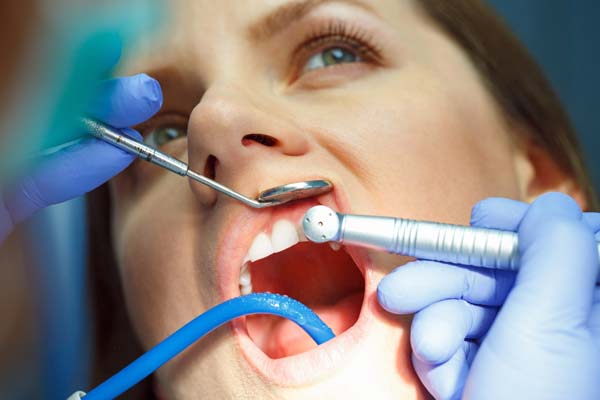How a General Dentist Treats Gum Disease

Like cavities, gum disease is a common dental dysfunction that affects people of all ages. If you are suffering from gum disease, you should not put off getting treatment. Your general dentist has the knowledge and training to relieve the symptoms of this disease. In some cases, the dentist might be able to reverse its effects. You can have peace of mind to know that there are methods available to restore your health and prevent more serious problems.
An overview of gum disease
Also known as periodontitis, this disease can damage the soft tissue in the mouth. It is characterized by red, inflamed gums and bleeding from this area while brushing or eating. Without proper treatment, periodontitis can cause bone loss and, eventually, tooth loss. Failing to brush and floss regularly will lead to this disease. This causes a buildup of bacteria between teeth and along the gumline. Plaque and tartar can form, destroying the gums and teeth.
Education
As the first signs of gum disease appear, the general dentist may teach proper brushing and flossing techniques to the patient. The individual may not be flossing and brushing enough, or at all. Or, the dentist may need to correct the way the patient is doing these things. Often, doing these habits correctly can stop the disease from progressing.
Scaling
This is one of the most common ways to combat gum disease. The dentist or hygienist can perform this treatment, either during a routine checkup or at a different appointment. Using a tool, the dentist or hygienist scrapes plaque and tartar from the surface of the teeth or below the gums. Some offices may use an ultrasonic device or a laser. This treatment can remove bacteria from the teeth and gums, promoting good health. It will reduce the risk of the disease becoming more serious.
Root planing
This process often accompanies scaling. The dentist smooths the surfaces of the roots. This minimizes the chances of bacteria growing and causing gum disease. It is also an effective way to stop tooth decay. This treatment can speed up the healing process for people who have severe periodontitis.
Medication
In some situations, the dentist may recommend using antibiotics to treat gum disease. Topical or oral medications can kill the bacteria that cause plaque and tartar buildup. This method is also a good way to keep infections from developing in the gums or teeth. The dentist may give multiple doses to the patient, depending on how serious the periodontitis is.
Surgery
The most severe cases of gum disease may require flap surgery. In this treatment, the dentist makes incisions in the gums, pulls them back, and exposes the roots. This allows the dentist to do more effective scaling. It can also let the dentist examine the bones and repair any bone loss.
Healing is possible
There can be serious consequences to having gum disease. The good news is that there is hope that you can recover from these issues. Your dentist can offer these treatments to restore your oral health. Make an appointment so you can discuss your options.
Request an appointment here: https://drcaffeyearle.com or call Smiles By Design at (972) 528-5536 for an appointment in our Flower Mound office.
Check out what others are saying about our dental services on Yelp: Gum Disease in Flower Mound, TX.
Recent Posts
Anyone who has ever had gum disease knows that it can have serious consequences. If you have the signs and symptoms of this condition, you should act now and start treating it. In the early stages, it is possible to cure it and restore the full health of your gums. Waiting too long could have…
Gum Disease can become very serious if the appropriate attention is not given. Because of how serious it can become, it is important to take the necessary measures to maintain good gum health. Thankfully, there are plenty of preventative steps that can be explored and taken in order to keep the gums in good shape.…
The goal of preventive dentistry is to keep teeth and gums clean and healthy in order to reduce the risk of cavities and other oral health concerns developing. It is a good idea to have a full understanding of how preventive dentistry can protect your smile and what services a dentist may recommend for cavity…
Preventative dental care is important for all patients, but those who live with a chronic health condition should consider regular dental visits even more often. Although many have heard this before, it is helpful to understand exactly why this is the case and what might take place during a visit for preventive dental care.Oral health…


